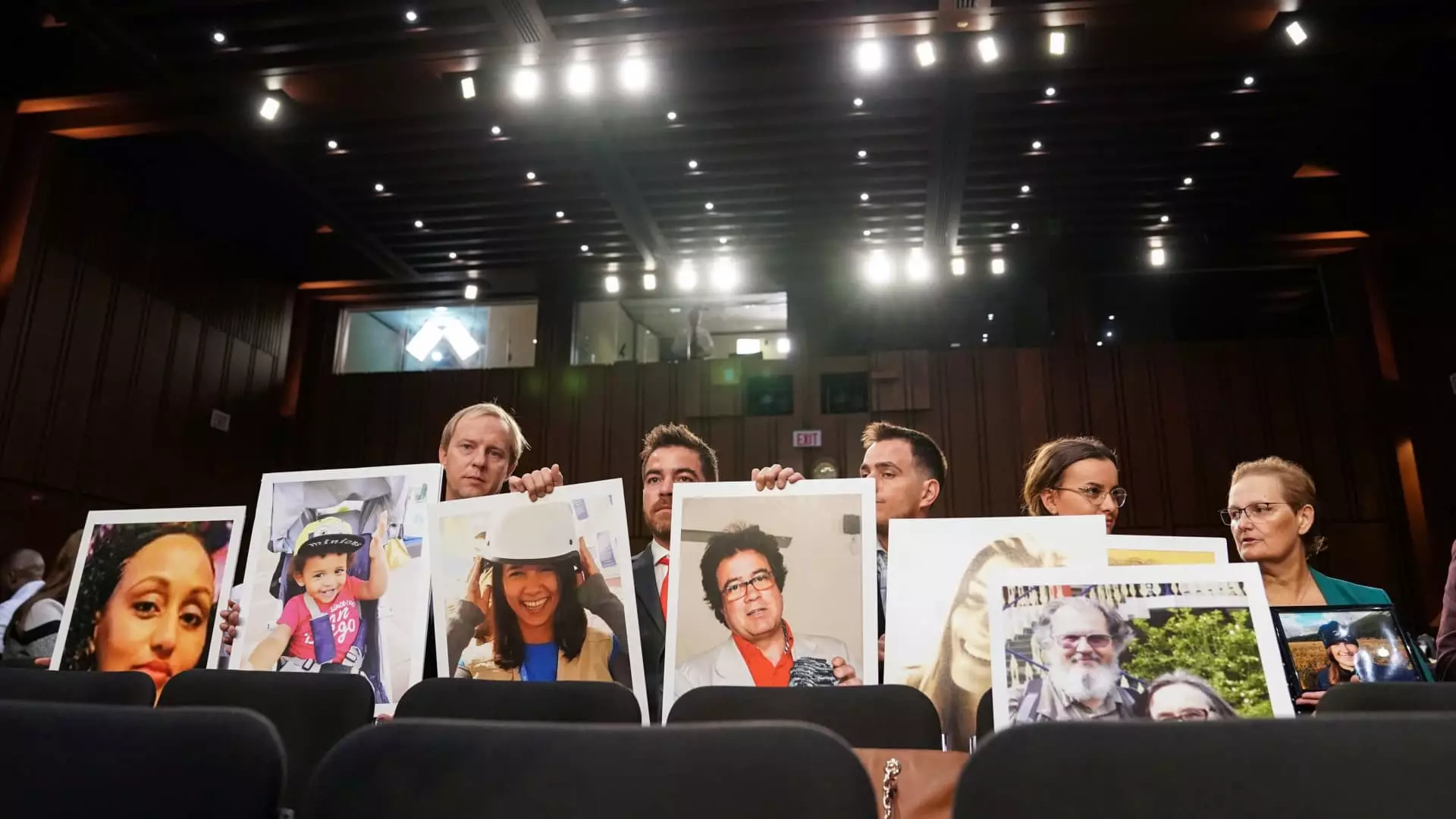The Boeing 737 Max tragedies have reverberated through families, communities, and the airline industry at large. When two of these aircraft catastrophically failed, resulting in the deaths of 346 individuals, the stakes were never merely commercial; they were profoundly human. With this weight of collective grief and suffering, one would expect a justice system deeply engaged in ensuring accountability. Yet, the recent non-prosecution agreement reached by the U.S. Justice Department raises eyebrows, igniting a fierce debate about corporate responsibility and ethical governance.
It is disheartening that instead of treating this as an opportunity to enforce stringent consequences on a giant responsible for both engineering marvels and tragic failures, discussions focused on mitigating the fallout for Boeing, a cornerstone of American manufacturing and defense contracting. This unease stems from the perception that, once again, a corporation has circumvented meaningful accountability for its misdeeds.
The Terms and Implications of the Deal
Under the newly minted agreement, Boeing is poised to invest over a staggering $1.1 billion. This encompasses a $487.2 million criminal fine—though $243.6 million of which is credited from an earlier arrangement—and a fund for victims’ families among other investment plans. To the untrained eye, this figure may seem substantial, yet it feels like an insufficient band-aid for the wounds opened by the loss of lives. These monetary compensations often fall short of truly addressing the repercussions of catastrophic incidents, especially within the framework of corporate accountability.
The Justice Department’s reasoning, described as a pursuit of a “fair and just resolution,” invites scrutiny. While avoiding lengthy trials may seem expedient, it implies the possibility that powerful corporations can simply pay their way out of significant wrongdoing. The principle of justice is muddled when financial settlements replace substantive legal responsibility. Such an approach signals to the corporate world that if it generates sufficient revenue, it can sidestep the principles of accountability that apply to individuals—and, indeed, to society.
Public Sentiment and Family Voices
Despite what might seem like a pragmatic resolution from the government’s perspective, the families of the victims exhibit a palpable sense of betrayal. In expressing their frustration through their attorney, Paul Cassell, they highlight a disconcerting notion that companies can offload their moral responsibilities simply through financial contributions. The announcement that some families support the agreement while others fight against it creates a complex narrative, indicating a divide in expectations and acceptance of what justice means in cases of corporate catastrophes.
The resentment felt by the families is rooted not only in personal loss but also in a desire for accountability that transcends money. Many family members plead for trials, where Boeing executives would face the music. Their call for justice resonates strongly, revealing an unfolding narrative where corporate giants are seen as untouchable. If we allow corporations like Boeing to evade comprehensive accountability merely through financial settlements, we endorse a system that prioritizes profits over people—a sentiment that no responsible society should embrace.
The Broader Implications for Corporate Governance
Boeing’s troubles extend beyond these legal settlements. The pattern of accepting settlements while surrounding legal proceedings hang like a sword of Damocles above any insurer of such corporations raises fundamental questions about how corporate governance functions in the modern era. When influential firms can sidestep trials, we set a dangerous precedent that encourages a culture where accountability is ultimately optional.
What happens when the public, feeling betrayed, begins to withhold trust and support from these behemoths, nestled comfortably in their corporate bubbles? The eventual fallout could compel companies to operate in an increasingly reactive mode, prioritizing risk management over genuine ethical conduct.
A Call for a New Standard of Accountability
The situation demands a re-evaluation of how we approach corporate malfeasance. If the legal framework allows for entities like Boeing to escape meaningful scrutiny, we perish as a society. The narrative of the corporate landscape must shift towards stringent accountability, one where financial reparations are only a fraction of the consequences incurred for major failings.
As citizens, we must push for systems that prioritize human life over profit, safety over efficiency. The tragedy should compel us to question how much longer victimized families need to fight for a sliver of justice. Accountability should not be a negotiable asset in the corporate sphere; it should be a non-negotiable expectation. Thus, the question lingers: how many more lives must we sacrifice at the altar of corporate profit before we wake up and dismantle a culture of complicity?

